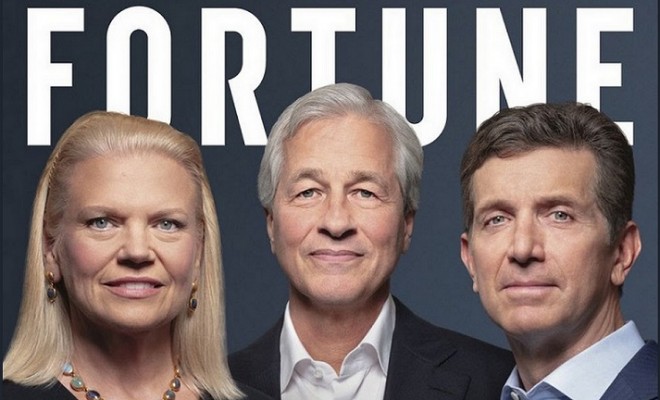
CEOs, America’s new politicians
New: The Business Roundtable today made a small, symbolic but significant move: 181 of the nation’s top CEOs agreed that driving shareholder value is no longer their sole business objective, Axios CEO Jim VandeHei writes.
- Why this matters:They expanded their mission beyond mere wealth creation to include everything from taking care of employees to helping their communities.
- This shift,spearheaded by BRT Chairman and JPMorgan Chase CEO Jamie Dimon, reflects the growing pressure from employees, social media and customers to do more than increase stock prices.
The big picture … Truth is, even the most press-shy, introverted CEOs need to be de facto politicians, thanks to several unambiguous social trends:
- Millennial employees demand their employers stand for something beyond profit.
- It is getting harderto recruit and retain talent, especially tech talent, if profit is the only objective.
- A rising number of consumersmake purchasing decisions based on a company’s social purpose.
- The media applies a lot more pressure on CEOs to take positions on political topics, such as race and immigration.
- Every CEO/companyis vulnerable to split-second, social media uprisings. Undefined CEOs and companies find it impossible to push back.
Watch for: Mischievous shareholders could use this BRT document to accuse CEOs of worrying about things beyond increasing the value of their shares, a fiduciary responsibility.
- I hearseveral general counsels cringed — and protested — when they saw this document.
Interesting historical note: A half decade ago, Steven Pearlstein, who won a Pulitzer for his WashPost columns on the economy, partly blamedthe BRT’s focus on shareholder value alone for the corruption of capitalism.
Tuck away … The BRT members that didn’t sign the new document: Alcoa, Blackstone, GE, Kaiser Permanente, NextEra, Parker Hannifin and State Farm.
Go deeper: Read my former boss, Alan Murray, who was first to reportthe new BRT document this morning in Fortune.
• Issues haunting CEOs during Trump era
Swelling employee protests and consumer boycotts have CEOs at large corporations spooked over how and when to respond to hot-button issues during the Trump administration, Axios’ Courtenay Brown and Sara Fischer write.
- Why it matters: With trust in government at a record low, people are looking to powerful businesses to shape the conversation around topics of national importance — and chief executives are torn over how to proceed without offending customers or shareholders.
By the numbers: Guns, abortion, immigration and nationalism are among the most controversial issues for companies to take a stand on, according to a Morning Consult poll, “Corporate Social Responsibility in the Trump Era.”
- It’s lesscontroversial for brands to take a stand on civil rights, racial equality, criminal justice reform, affirmative action and LGBTQ rights, the poll found.
- Brands with the best reputations among consumers are ones that stand for issues, regardless of whether those issues are considered liberal or progressive, according to an Axios/Harris 100 pollin March.
Between the lines: Younger, liberal Americans are more likely to want corporations to get involved.
- That’s whybrands like Nike that cater to younger, more diverse customers have chosen to take strong stands on social issues.
Πηγή: axios.com




